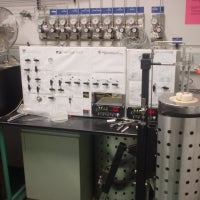
Researchers from the University of Western Australia (UWA) have developed new technology to produce renewable hydrogen and graphite from wastewater.
The new technology, which has been developed a part of a new State Government project, is expected to produce around 100 tonnes of fuel-grade hydrogen and 380 tonnes of graphite each year. It also has potential for expansion.
Acquired by Hazer Group for commercial use, the technology uses the waste product of biogas that is primarily composed of methane and carbon dioxide.
The UWA researchers said that the waste gas will be used by the technology to produce low-emission hydrogen and graphite using iron ore catalyst.
UWA’s School of Engineering professor Hui Tong Chua led the initial research, which involved the development of hydrogen by breaking the chemical bond of the naturally occurring gas methane.
Graphitic carbon has potential for high-value applications
Chua said the hydrogen is produced by releasing by-product graphitic carbon, which has potential for high-value applications.
Chua added: “This is a marvellous application of the Hazer process onto renewable biomass, with the carbon being sequestered as solid graphitic carbon, which has potential applications in batteries.
“It is heartening that UWA technology is assisting with the Australian economy, especially in the renewable energy sector, in terms of generating employment and building resilience toward a low-emission future.”
The project is expected to contribute to the State Government’s Renewable Hydrogen Strategy to advance the WA hydrogen industry.
In May 2020, BP Australia said it plans to undertake a feasibility study for constructing a renewable hydrogen and ammonia production facility in Geraldton, Western Australia.
The A$4.42m ($2.8m) feasibility study will help BP and the energy sector to gain an enhanced understanding of the technical and financial implications of a fully integrated renewable hydrogen supply chain.


